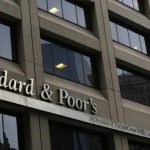Bank of Portugal warns of risk of house price falls
Prices in Portugal’s residential housing market could take a tumble according to a warning from the Governor of the Bank of Portugal, Mário Centeno, on Friday.
The difficult context in which a war, soaring energy prices, and general inflation on the heels of a two-year pandemic had created “the perfect storm” with the Bank of Portugal warning of “multiple risks and vulnerabilities” which could threaten financial stability.
The first, “The risk of a fall in residential real estate prices as a result of the change in mortgage conditions”, states the BoP’s Financial Stability Report published on Friday by Portugal’s central bank.
The regulator warns: “In the context of the recent greater growth in mortgage (demand), it is vital to assure that this does not become a determinant factor for the evolution of prices in the housing market”.
“Despite the uncertainly cased by the pandemic crisis”, here, as has been the case overseas, house prices have “continued to increase in Portugal”, reflecting “the demand for housing by non residents, which has continued, and the scarcity of offer”.
It was not Portuguese bank credit (mortgages) that had pushed house prices up”, states the Bank of Portugal, But external demand from overseas buyers.
In the first quarter of 2022, house prices in Portugal rose 12.9% according to the house price index IPHab on the same period in 2021, and 1.3 percentage points on last quarter of 2021.
Then, for the banking system: “The evolution of the economic environment in recent months has increased the probability of risks in the credit market, as well as an increase in the financial margins of the banks”, states the Bank of Portugal.
If, on the one hand, the increase in interest rates, in particular, in the coming months should result in an improved financial margin for the banks, then so too will an increased recognition of potential impairments and losses arising from a fall in the value of sovereign bonds”.
The impact of these factors “is conditioned by the evolution of economic activity and should be differentiated in line with the time horizon”.
The increase in uncertainty had resulted in greater volatility in the international financial markets which affects investor choices, and could “lead to an aversion of risk”.










